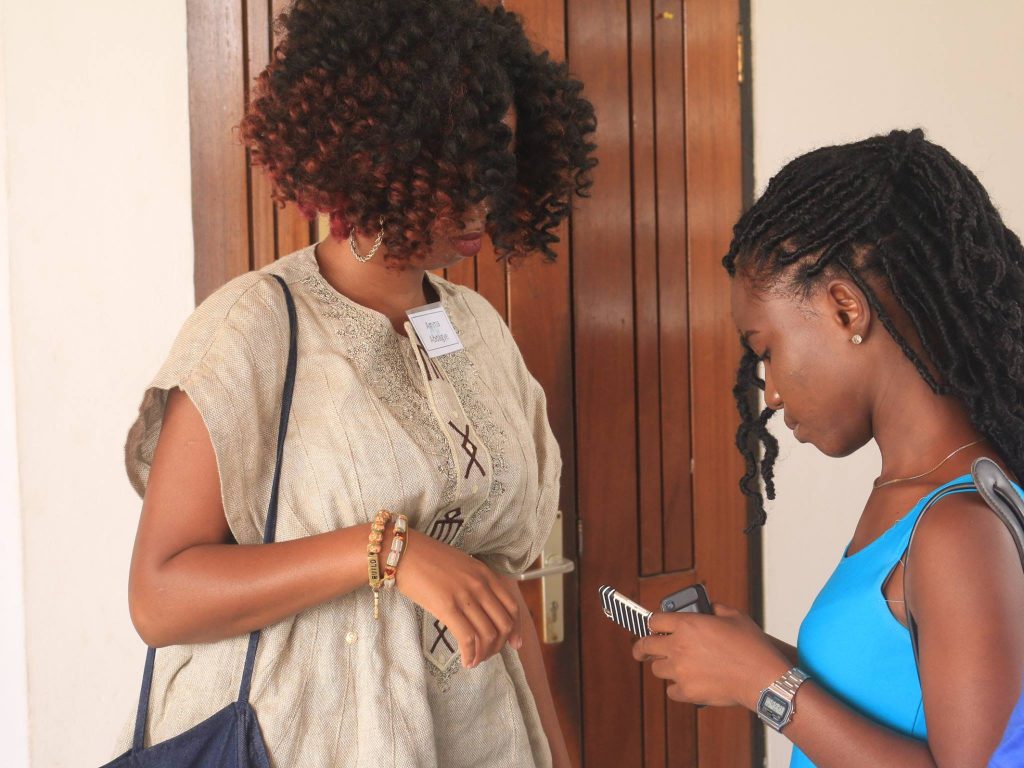Matriculation, course registration, lecturers’ strikes, hall week, departmental celebrations, congregations- these are the events that characterised my undergraduate years. Every undergraduate should know thar over the four year period at the University of Ghana, there will be a mixture of good and bad experiences. Four years seemed long at the beginning but it passed swiftly, with each semester going by quicker than the last. My undergraduate years was also a time of great learning and growth for me. Here’s what I learnt in those four years and wish I had known
Getting involved in extra-curricular activities is important.
Getting into the university, many focus on making excellent grades and vowed to never allow anything interfere with that. Every undergraduate should know that this can lead to an antisocial or semi-antisocial lifestyles on campus. Trying to avoid extra-curricular activities such as clubs, sports, unions and associations which “would interfere with academic work”.

In my final year, however, I observed closely the benefits of getting involved in some of these extra-curricular activities. Sports, for instance, helped in getting students in shape physically and getting them structure their lives more appropriately. Joining some clubs, union and associations on campus such as AIESEC provided different forms of experiential learning across different aspects of life. Some of these clubs gave students volunteering opportunities which helped in boosting their confidence and shaping their mind-sets and attitudes for life. I personally witnessed how this can help in securing employment, drawing from the experiences as either leaders or members of these clubs. Some sportsmen and sportswomen were also able to secure Master’s scholarships, owing to their involvement in sports.
Proof of leadership, volunteering and networking skills have proven to be top deciders for many graduate school admissions and employers.
Networking is an important life skill.
Life is about networking, every undergraduate should know this before graduation. After all, we spend much of our time socialising with people in different places; at work, in our neighbourhoods, at social clubs and gatherings. However, many young people do not identify the importance of networking in their prime years.

Campus represents a microcosm of the “real world”, a great opportunity for young people to build networks for life. Roommates, coursemates, floormates, hall members, teaching assistants, lecturers- these are great networks that every university student should tap into. It is a gift to be able to relate well with lecturers and build good relationships beyond lecture halls. Unfortunately, many students have lecturers writing general reference letters for them because these lecturers may never have had any form of interaction with them and are therefore unable to speak to their specific skills and abilities. Believe me when I tell you that it is easy to differentiate a generic reference letter from a personalised one.
Beyond lecturers, friendships built with people of the same or similar cohort such as roommates and course mates, for instance, are able to last long and lead to future collaborations and partnerships. At the end of one’s undergraduate years, one must be able to show rich networks built and maintained over the four-year period. Joining GHScientific is a great way to start building your network and getting access to useful resources.
Balance is necessary
Although it is important to network with other people and participate in extra-curricular activities, every undergraduate should know that these must be combined with academic work. I noticed that on campus, there is a high tendency for students to try to combine extra-curricular activities with their academic work. However, a number of students have failed terribly at this over the years, with some graduating with very poor classes and grade point averages due to their involvement in extra-curricular activities. This fear of failure is the deterrent for engaging in extra-curricular activities for most students as I firstly noted.

It is not an impossible feat and many are able to combine academic work with extra-curricular activities very well, ending up with very good grade point averages and classes. The key to excelling in tertiary education is the ability to maintain a good balance between every aspect of life and one’s academic work. The exact same skill that is needed to excel in the world at large.
The goal of tertiary education is not to find a job per se
It is not just about preparing for a specific job, but every undergraduate should know that it is more about developing into a thinker and problem solver. Many students enter the university with their main focus being to secure a good, well-paying job after their university education. Although this is not necessarily a bad thought, this has crippled the minds of some students and disputed the whole purpose of tertiary education.
Tertiary education serves as the mode of training students to become independent, good thinkers and problem solvers. However, the mind-set of securing a job and making good grades only has led to students developing low capacity to practically apply what is taught at lectures to daily life issues. Resulting in the low propensity of students to solve problems in their societies with little or no form of assistance.
Entrepreneurship thrives well on campus.
Every university campus is a community on its own. This presents a great opportunity for students to explore their entrepreneurial abilities. From dealing in various goods to the running of services, students can engage in various ventures, not only profit-making but also social enterprises on campus. This may not necessarily be an individual initiative but may be considered in the form of partnerships and collaborations. Indeed, some student ventures started on campus are still being run as business ventures years after the originators have completed their undergraduate studies.
So there you have it. Undergrad years are filled with fun, learning and developmental experiences. Like every other phase of life, it is the choices that one makes that defines the end. So have fun, study hard and choose wisely. I look forward to reading better testimonials of your undergraduate years some day.
